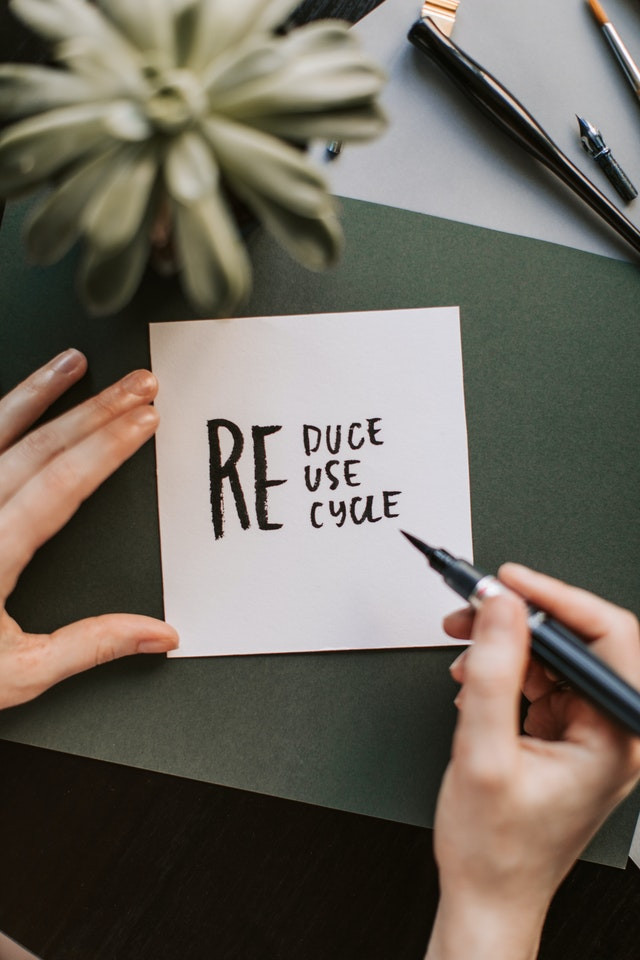
Recycled or FSC Certified? The Paper Dilemma
15th Apr 2020
While we might assuage our plastic conscience by opting for paper instead, there is still a certain guilt associated with doing so. We know paper comes from forests, which are usually cut down with no regard for sustainability – releasing CO2 into the air and removing vital habitat for cute and not-so-cute animals alike. So what do you do? Do you buy recycled paper, secure in the knowledge that you're not contributing to deforestation? Or do you go for FSC-certified paper instead, knowing that the forest plantations it comes from have been managed responsibly?

Recycled Paper
Recycled paper solves many issues - and gives rise to a host of others. The stats look good for recycled paper. By recycling one ton of paper, you could power a home for nine months, save 7,000 gallons of water, and reduce greenhouse gas emissions by one ton of CO2 equivalent. Recycling is also a relatively simple process: we put the paper in the recycling bin, buy recycled, and we've closed the loop. But is what goes in the recycling bin actually being recycled? When China and every other country in Asia stopped taking our recyclables, Australian recycling companies panicked. We simply don't have the infrastructure to recycle the amount of glass and paper and plastic that our country produces. In short, the answer to the question is that no one really knows. This is not to say to stop putting your waste in the recycling bin. Without demand for recycling facilities, Australia will make no effort to improve its infrastructure. Just – don't think of recycling as the God-sent answer. Read about a potential solution to our recycling crisis here. Then there are the issues at the other end of the recycling line. Credible certification is lacking, and "recycled" paper does not necessarily have to contain a high level of non-virgin material. Check percentages and aim for 100% "post-consumer waste paper". However, if the paper was recycled using energy from coal, it may as well not be recycled for all the difference it is having. But don't boycott recycled paper in general – if you can find recycled paper that has used "best practice" – i.e. the issues above are not issues – go for it.
FSC Certification
FSC certification seems to be an answer, but it's never clear-cut. The Forest Stewardship Council (FSC) originated in California in the late 1990s as a not-for-profit combination of NGOs, government, and paper and timber players. The FSC inspects and tracks timber and pulp through the production chain, checking for forest management and treatment of indigenous peoples. Forests support 1.6 billion of the poorest people in the world: the FSC ensures global companies are not profiting off the displacement of these people. Currently, over 210 million hectares are certified around the world, protecting habitat and supporting communities. However, groups have raised issues in the past regarding the amount of land that is actually owned by indigenous communities compared to private companies, and whether certified plantations are in fact polluting the environment despite their certification. Certifications are not infallible – however, we probably have to be informed, and trust them to a certain extent.
In Conclusion
Which is better, FSC-certified or recycled? Maybe a combination is best. The answer is probably not as clear-cut as you hoped. Sometimes both options will not be available, and in this case the only thing to do is opt for the best one. However, if you have the option, perhaps go for a combination of the two. Increasingly, we are seeing products offering a mixture of FSC-certified virgin fibre and recycled content. The best solution is to be informed and educated, and make your decision based on that.
Information taken from the Guardian and the Forest Stewardship Council. Read about BioPak's paper and why we love BioCups on our blog.
Planet Friendly Packaging acknowledges the traditional custodians of the land on which we work. Our thoughts go out to everyone affected by COVID-19. Stay safe.

